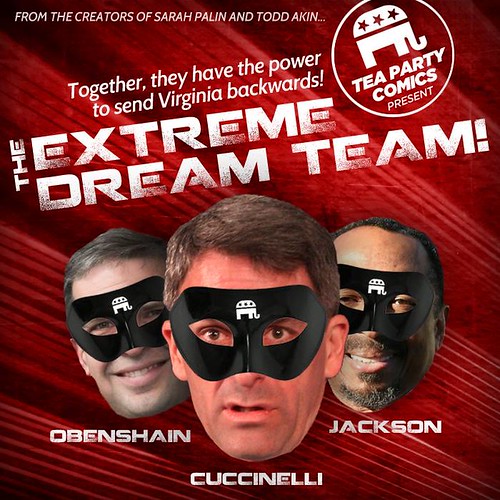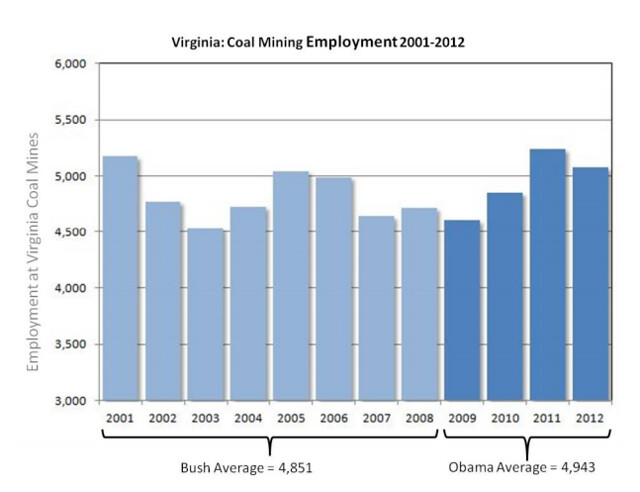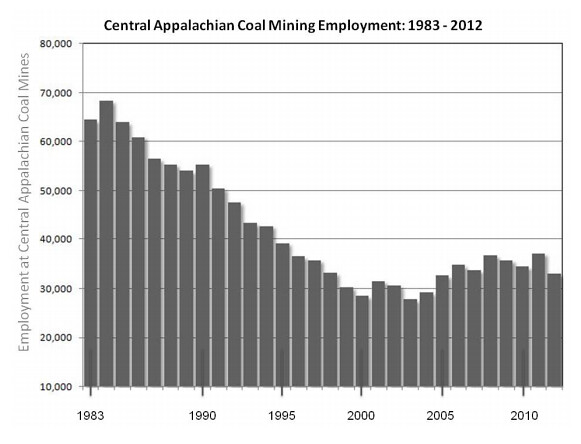Strategically Speaking: Should Cuccinelli Moderate His Views?
( – promoted by lowkell)
 by Paul Goldman
by Paul Goldman
At 200-proof politics, we have a self-confessed fascination with the underdog: favorites win most of the time, so it isn’t a particularly difficult challenge to noodle out their best strategy. Indeed, favorites often only need to run a campaign centered on pointing out the problems with their opponent. That means their strategy is as follows: 10% focus on the good things they will do, 90% focus on the bad things their opponent will do. The idea is to paint yourself as the SAFE choice, your opponent as the RISKY choice. Key swing voters invariably go for the safe choice.
In a very insightful recent interview, UVA Professor Larry Sabato pointed out why Terry McAuliffe is the clear favorite in November. The good doctor correctly said that in Virginia, a GUV candidate defined in the minds of swing voters as having primarily an activist social agenda is not doing to win. Period. Such a candidate’s image is simply too risky. End of story. No such candidate has ever won the Governorship of Virginia. The good doctor is right.
In that regard, I think TMac’s strategy is basically what all favorites have done in Virginia. He is trying to define the middle, take that high ground, and make it impossible for his opponent to claim that hill. Boring: but effective. Low risk, but high maintenance.
HOWEVER: While the pundits, press, professors, and professional politicians on all sides of the aisle are saying – “Kenny Boy, you got to moderate your positions man, or you’re gonna get some kind of big time whipping this fall” – we at 200-proof ain’t buying it. We may be alone in our thinking, but we don’t think the right strategy for Cuccinelli is to try and become the “more moderate new Ken.” We know it goes against everything that everyone seems to think has to be done. But we think it is a fool’s errand. Even if it worked – which it won’t – it doesn’t help the boy.
Why not? A candidate’s position on any issue is DERIVATIVE. That is to say, it derives from his or her REASONING. The reason voters reject ideologues is not, in our view, the positions per se: swing voters often disagree with a candidate on many key issues. But they know a governor is elected to make decisions on future issues: the stuff lurking around the bend. They can’t ask a candidate for governor about every possible issue, indeed the big ones in the future may not be known.
THUS: The fear of an ideologue is less about his/her position on a current issue, but more about what the current positions suggest regarding the RISK of putting someone with that kind of reasoning process in the Governor’s chair. What will he do next time, with my issue?
Therefore, it is going to be a folly for Mr. Cuccinelli to spend millions of dollars and precious campaign time to try and “moderate” his image on the social issues. Given the way he explains his views, there is no way to moderate anything in that regard. There is nothing he has previously explained relative to these views which have moderated him. He is who he is.
Thus, Cuccinelli’s strategy mistake to date has nothing to do with failing to moderate his positions. Rather, he has failed to offer a vision of his term as Governor, one which indicates to swing voters that his views on issues are grounded in the reasoning of a practical, sensible, guy able to govern a diverse state. Opinion leaders are painting the picture of a guy who reasons like an ideologue. His statements and book aid that narrative. No amount of position moderation can change fundamentally all this.
Accordingly: Cuccinelli can try to moderate his social views all he wants. But in the end, even if he could do it, he would have wasted his chance to talk about the big issues that matter most. The big issues that would show he has the same interest and passion for non-social issues. The same interest and passion to find solutions based on practical reasoning, not pre-conceptions.
Ronald Reagan, Bill Clinton, and President Obama have shown how to overcome some serious problems with tangential issues. They focused on on being seen as finding useful solutions to the important issues for the broad middle range voter.
Cuccinelli’s problem is this: He has yet to show as much interest and passion in non-social problems as he does for the hot-button social issues. When you think of Cuccinelli, do think of jobs, the economy, elementary education, secondary education, college, working family issues, anything? No. Indeed, his one interest in a non-social issue – the cost of health care – is no longer mentioned.
Bottom line: Cuccinelli’s underlying problem is not being an ideologue on social issues. Rather, it is a campaign which has totally failed to convince the middle that he cares about things other than social issues. Let me state it this way. EVEN IF he had the most enlightened views on social issues, he would still not win the GUV race if that was the sum and substance of his campaign.
Give Terry credit: he is focusing on the big, mainstream issues of importance to swing voters. The real power of his anti-Cuccinelli attack is that it reinforces Cuccinelli’s image as a guy who simply doesn’t have much time or energy for the non-social issues. It is the unstated premise. But people get it.
Earth to the pundits: It is no surprise that a GOP GUV nominee is against gay marriage or abortion. But Allen talked about crime and education, Gilmore taxes and education, and McDonnell transportation and taxes and education. Cuccinelli is not in that zone.
So he can “moderate” on the social issues all he wants. It won’t help him.




 A Virginia Democratic staffer emailed me the other day with some interesting information I thought worth passing on. What prompted the email was the Supreme Court striking down a key part of the Voting Rights Act, as well as this quote in the
A Virginia Democratic staffer emailed me the other day with some interesting information I thought worth passing on. What prompted the email was the Supreme Court striking down a key part of the Voting Rights Act, as well as this quote in the 







